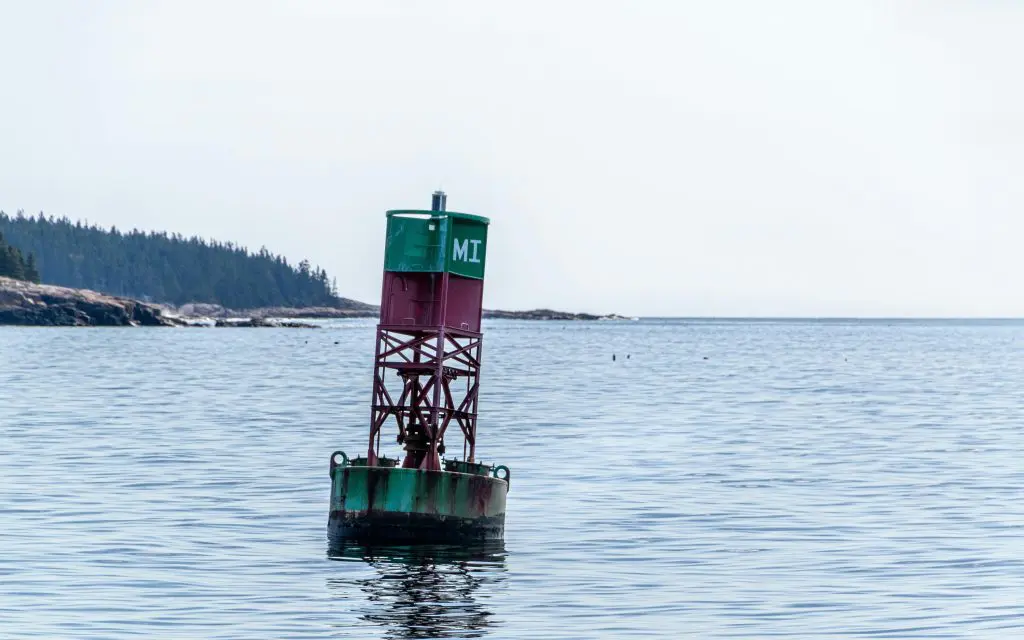
The Marine Institute has successfully deployed a state-of-the-art data buoy in Lough Furnace, Co. Mayo, enhancing Ireland’s capacity to monitor and respond to the impacts of climate change. This development significantly boosts Ireland’s long-term marine data collection infrastructure, supporting climate action both nationally and across the EU. A New Tool for Climate Monitoring The new […]
The Marine Institute has successfully deployed a state-of-the-art data buoy in Lough Furnace, Co. Mayo, enhancing Ireland’s capacity to monitor and respond to the impacts of climate change. This development significantly boosts Ireland’s long-term marine data collection infrastructure, supporting climate action both nationally and across the EU.
The new buoy is equipped with cutting-edge aquatic and atmospheric sensors that provide real-time data on a range of environmental parameters including:
Water temperature
Salinity
Dissolved gases (e.g. oxygen)
Acidity (pH)
Water clarity
These measurements feed into long-term datasets that are vital for tracking how climate change affects aquatic ecosystems, fisheries, and aquaculture.
The buoy was installed under the Marine Knowledge Scheme, part of the European Maritime, Aquaculture and Fisheries Fund (EMFAF) 2021–2027, and is co-funded by the Government of Ireland. The scheme promotes access to marine and climate data, strengthening Ireland’s ability to manage ocean resources sustainably and respond to climate risks.
Russell Poole, Section Manager at the Marine Institute in Newport, highlighted that the Lough Furnace deployment builds on over 70 years of scientific research in the Burrishoole Catchment, a site of global ecological importance. The buoy complements research conducted with:
GLEON (Global Lake Ecological Observatory Network)
University of Galway
Atlantic Technological University
Dundalk Institute of Technology
Together, these collaborations ensure that Ireland remains at the forefront of marine ecosystem monitoring and climate adaptation science.
The Marine Institute operates long-term monitoring stations at:
Mace Head, Co. Galway
Lehanagh Pool, Co. Galway
Lough Furnace, Co. Mayo (newly added)
These stations deliver data on plankton ecology, nutrient dynamics, dissolved oxygen, carbon emissions, and other oceanographic conditions. The new buoy is a key addition to this network, supporting Ireland’s Climate Action Plan and Climate Act 2021 goals to reduce greenhouse gas emissions by 51% by 2030 and reach net-zero by 2050.
Ciaran Kelly, Director of Fisheries Ecosystems Advisory Services at the Marine Institute, said:
“The deployment of the buoy at Lough Furnace is a significant boost for Ireland’s marine climate monitoring network. Generating robust, long-term data enhances our ability to make evidence-based policy for effective climate action.”
In addition to its role in climate policy, the data gathered supports:
Ireland’s obligations under the Common Fisheries Policy
The National Marine Planning Framework
EU environmental directives on habitats, birds, and water quality
The information gathered by the buoy helps policymakers, researchers, and industry stakeholders make informed decisions. It enables proactive, science-led responses to ecosystem changes and helps safeguard marine biodiversity.
This initiative also contributes to a Just Transition by supporting marine resource management in ways that are socially and environmentally equitable.
Visit the Marine Institute EMFAF Programme page to learn more about the Marine Knowledge Scheme and Ireland’s marine and climate data initiatives.
| Feature | Details |
|---|---|
| Buoy Location | Lough Furnace, Co. Mayo |
| Funding | EMFAF 2021–2027, co-funded by Government of Ireland |
| Key Parameters Measured | Temperature, salinity, dissolved gases, pH, water clarity |
| Purpose | Long-term climate and aquatic ecosystem monitoring |
| Supports | Ireland’s Climate Action Plan, EU directives, sustainable ocean management |
Beyond its scientific importance, ocean monitoring also makes strong economic sense. Ireland’s blue economy, which includes fisheries, aquaculture, offshore wind, tourism, and marine biotechnology, depends heavily on predictable and stable marine conditions. Accurate, real-time environmental data reduces risks for these industries by enabling better planning, forecasting, and decision-making.
For example, fish farms can adjust feeding strategies based on oxygen levels, while offshore wind operators can optimise turbine placement using oceanographic data. The installation of the Lough Furnace buoy strengthens this infrastructure, giving businesses more tools to adapt to climate variability and comply with environmental regulations. It also supports Ireland’s emerging role in marine renewable energy development, a sector poised to generate thousands of jobs in the coming decades. In this context, marine monitoring is not just an environmental necessity, it’s an economic enabler.
The deployment of the new climate monitoring buoy in Lough Furnace marks a significant milestone in Ireland’s efforts to address the impacts of climate change through science-driven policy and environmental stewardship. By generating real-time, high-quality data on aquatic ecosystems, the buoy enhances Ireland’s ability to meet national and EU climate commitments, support sustainable fisheries, and safeguard marine biodiversity. As climate challenges intensify, initiatives like this underscore the critical role of long-term scientific research and international collaboration in building a more resilient and sustainable future.
At All-Ireland Sustainability, we’re committed to building a greener, fairer island, together. Stay informed on the latest environmental initiatives, community action, and policy developments shaping sustainability across Ireland, North and South.
👉 Sign up for our newsletter today and be the first to hear about upcoming events, expert insights, and ways to get involved.
Whether you’re a seasoned advocate or just starting your journey, new members are always welcome.
Subscribe now and be part of the All-Ireland Sustainability Membership.